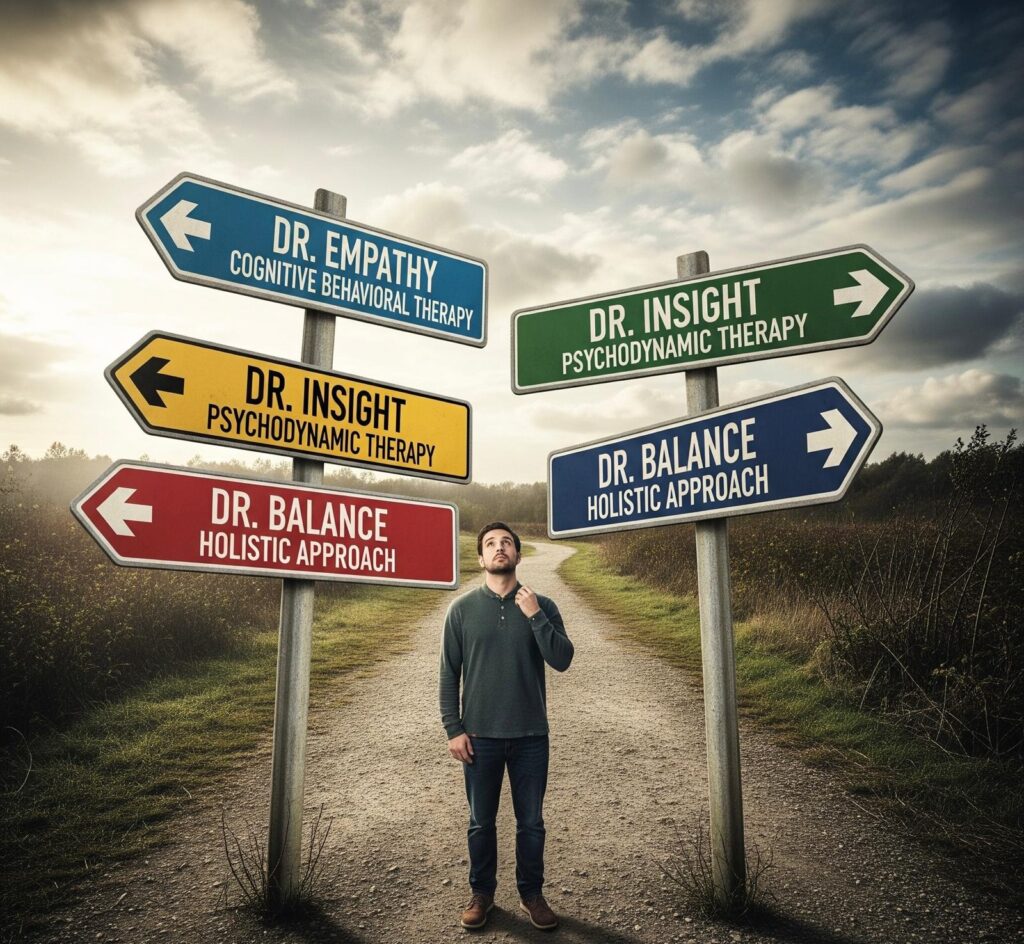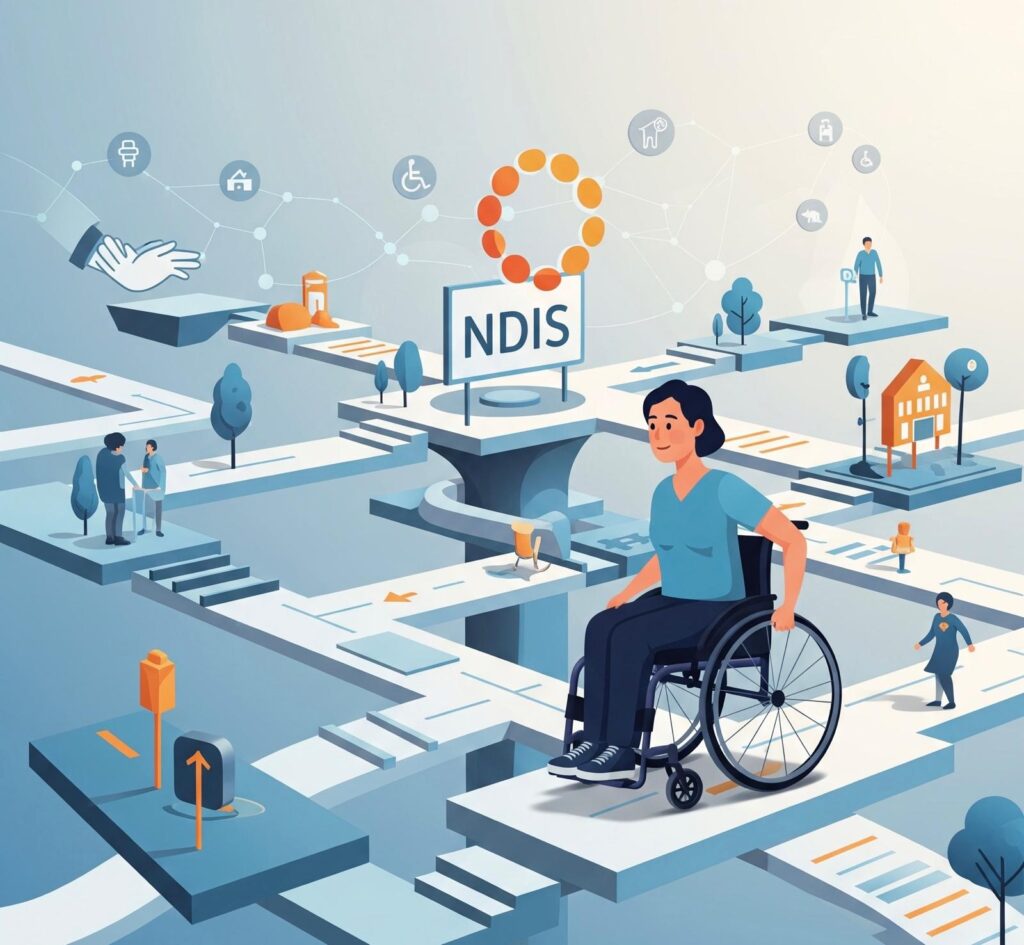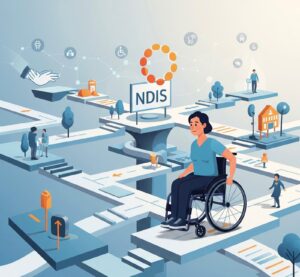By Therapy Near Me | July 2025
Choosing a psychologist is a deeply personal journey—and it matters. Research consistently highlights that the therapeutic relationship is the single strongest predictor of successful therapy outcomes—not just credentials or techniques (Rosenzweig’s common factors: alliance, empathy, goal consensus) . Here’s how to navigate the search.
Keywords: find psychologist near me, best psychologist fit, therapist match guide, how to choose a psychologist, therapeutic alliance importance, psychologist directories, choosing therapy style, psychologist qualifications, where to find psychologist, psychologist consultation tips
1. Clarify Your Needs and Preferences
Start by asking yourself:
- What issues am I seeking help with? (e.g., anxiety, trauma, ADHD)
- What therapeutic approach resonates? CBT, ACT, EMDR, psychodynamic
- Do I prefer in-person, telehealth, or flexible hours?
Identify demographic or cultural factors—gender, age, ethnicity, language—that may affect your comfort and trust .
2. Use Trusted Directories & Referrals
Locating psychologists is easier via:
- APS “Find a Psychologist”—an Australian directory filtered by issue or location .
- Online platforms like Psychology Today, or GoodTherapy.
- GP or health referral, especially if you’re engaging Medicare-subsidised support or seeking a care plan .
3. Evaluate Qualifications & Fit
Check:
- Credentials and AHPRA or APA licensure.
- Specialty training relevant to your needs (e.g., OCD, neurodiversity).
- Approach—are they collaborative? Provide treatment goals? Discuss expected duration?
- Fit with your values—e.g., cultural matching, trauma-informed care, shared decision-making .
4. Use Consultations to Test Compatibility
Most offer free initial calls or sessions. Use these to judge:
- Ease of communication
- Responsiveness and warmth
- Treatment planning clarity
- Practical topics: fees, scheduling, insurance coverage .
5. Prioritize Therapeutic Alliance
Research shows therapeutic alliance components—goal collaboration, empathy, positive regard—account for significant variance in outcomes (over 30%) more than specific therapy style . Strong relational fit matters more than perfect credentials.
6. Consider Access & Practical Barriers
- Availability: waitlists can vary widely.
- Cost: some therapists offer sliding-scale fees or accept Medicare rebates (Better Access).
- Location: rural or underserved areas benefit from telehealth or hybrid options .
Patients from younger or rural demographics often report lower satisfaction due to accessibility, perceived empathy, or financial barriers .
7. Know When to Move On
Therapy isn’t always a perfect match initially. If after 3–4 sessions:
- You consistently feel unheard or misunderstood
- There’s no progress toward goals
- You feel dismissed or misaligned
…then looking for another psychologist is acceptable and often necessary for progress .
8. Streamline Your Search Table
| Step | Action |
|---|---|
| Define goals and preferences | Identify issues, modality, therapist traits |
| Search directories or referrals | Use APS, Psychology Today, or GP advice |
| Evaluate credentials | Confirm licensure, specialisation, methodology |
| Conduct initial consultations | Assess comfort, alignment, logistics |
| Monitor therapeutic alliance | Prioritise empathy, trust, shared goals |
| Review access and feasibility | Consider cost, location, availability |
| Reassess after 3–4 sessions | Switch if no rapport or progress |
References
American Psychological Association (2019) How to choose a psychologist, APA.
Rosenzweig, S. (1936) Common factors theory components: alliance, empathy, positive regard .
Hamde, M. (2018) Finding the right psychologist is like app dating, ABC News.
Resilient Minds Psychology (2025) How to find the right psychologist .
APS (2025) Find a Psychologist directory, Australian Psychological Society .
Medical News Today (2025) How to choose a psychologist .
Time (2023) ‘How to find a therapist who’s right for you’, Time .
Medibank (2025) Finding the right mental health professional .
Scientific articles on patient satisfaction (2025) BMC Health Services Research & others .
Wired (2022) ‘Why therapy is broken’ focused on misfit challenges and alliance necessity .








